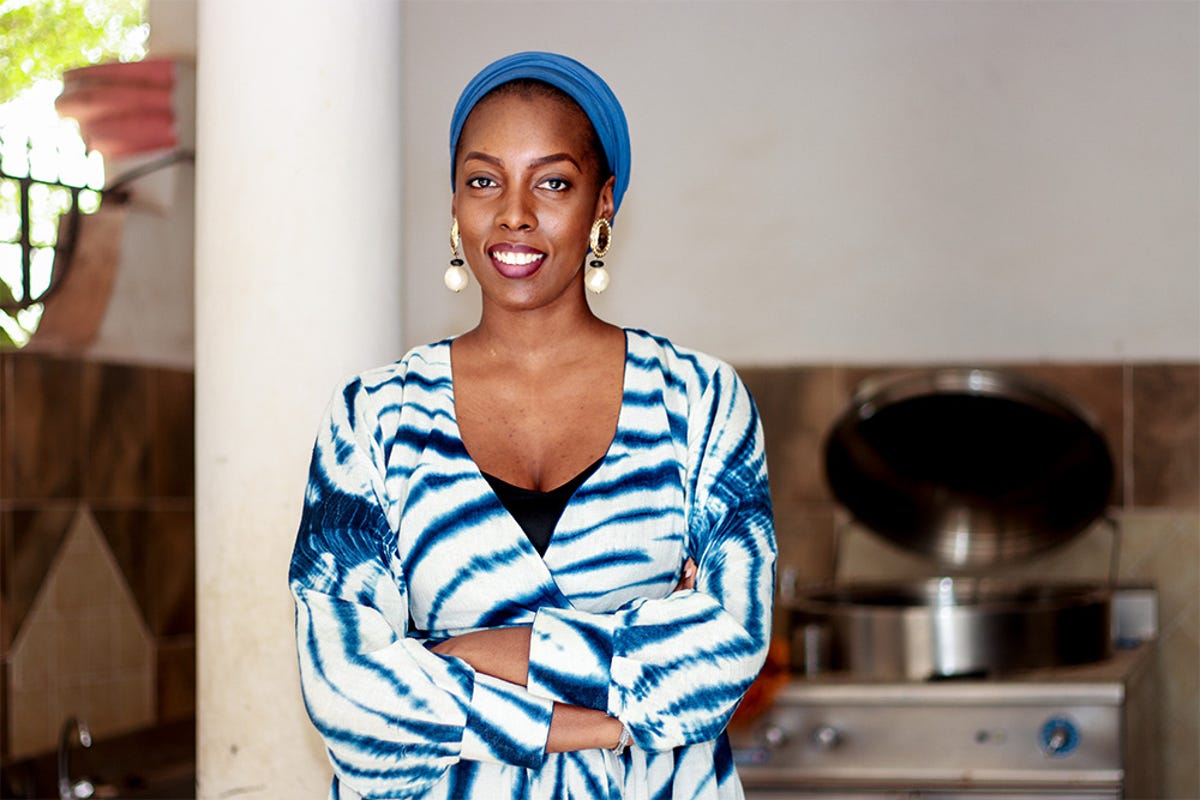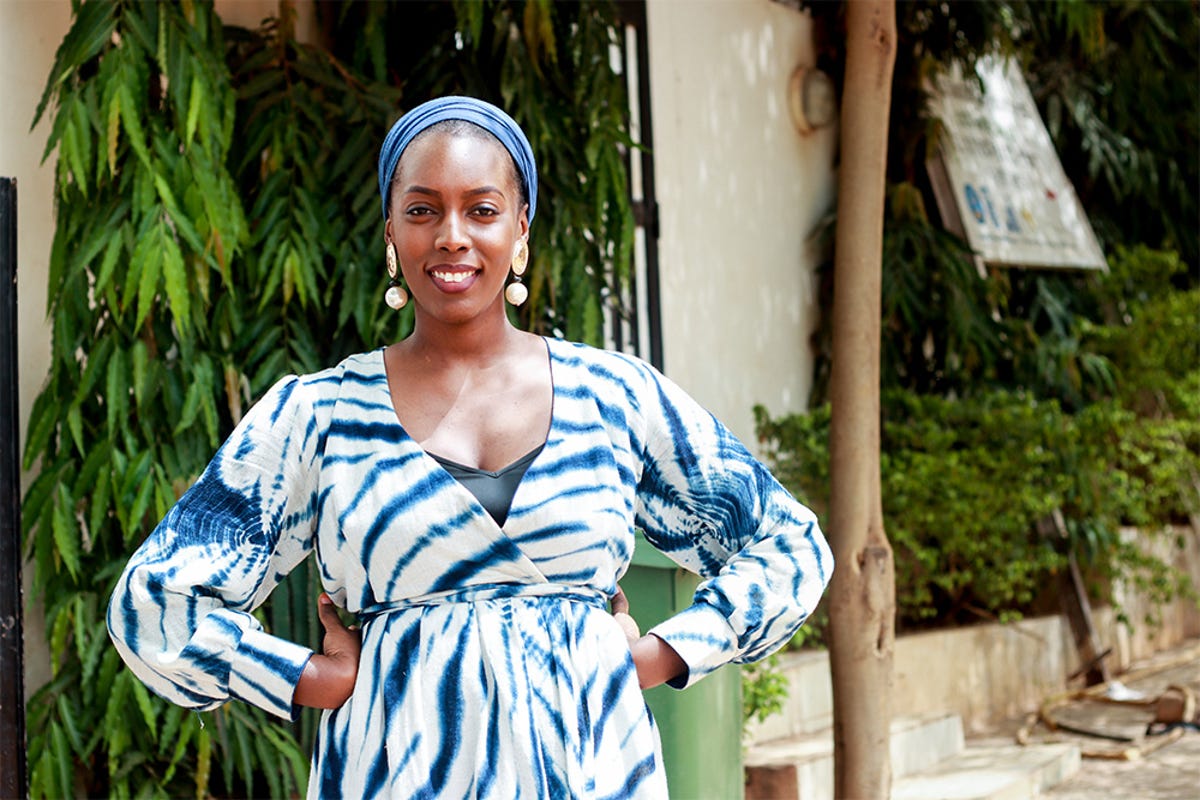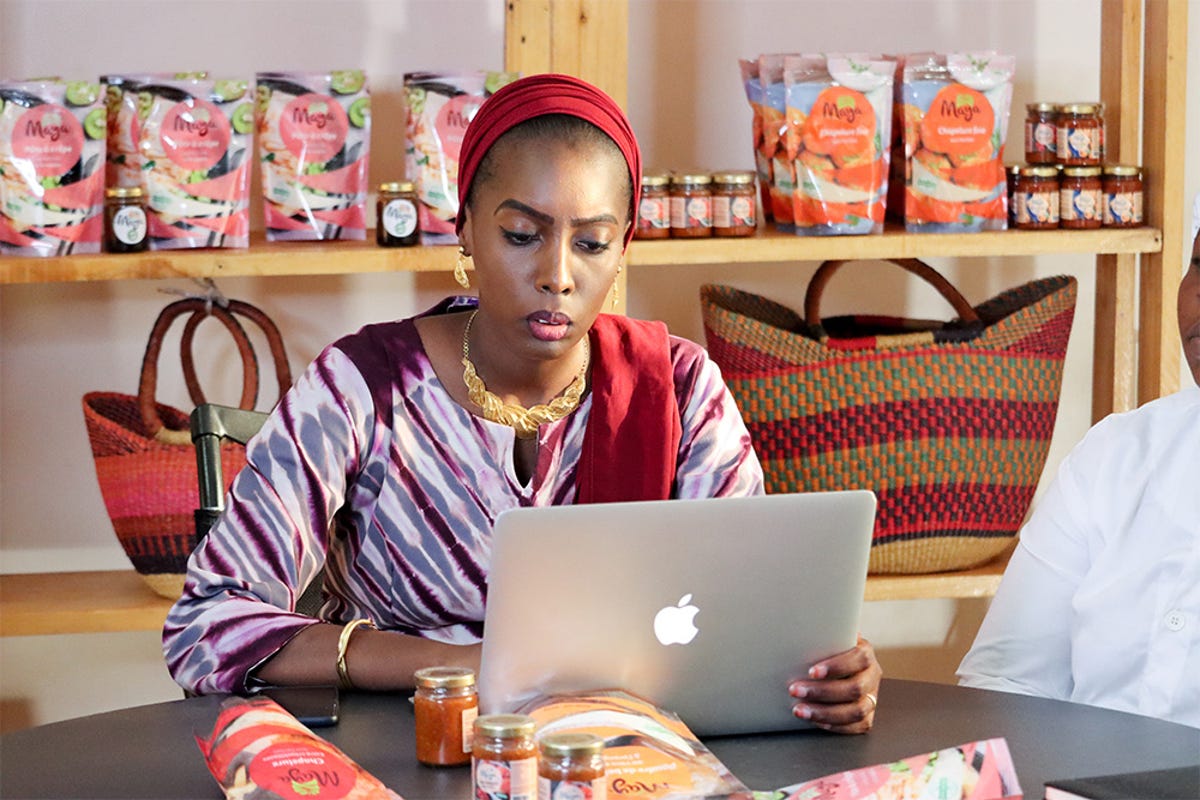Fellow Portrait
SEYNABOU DIENG
Maya
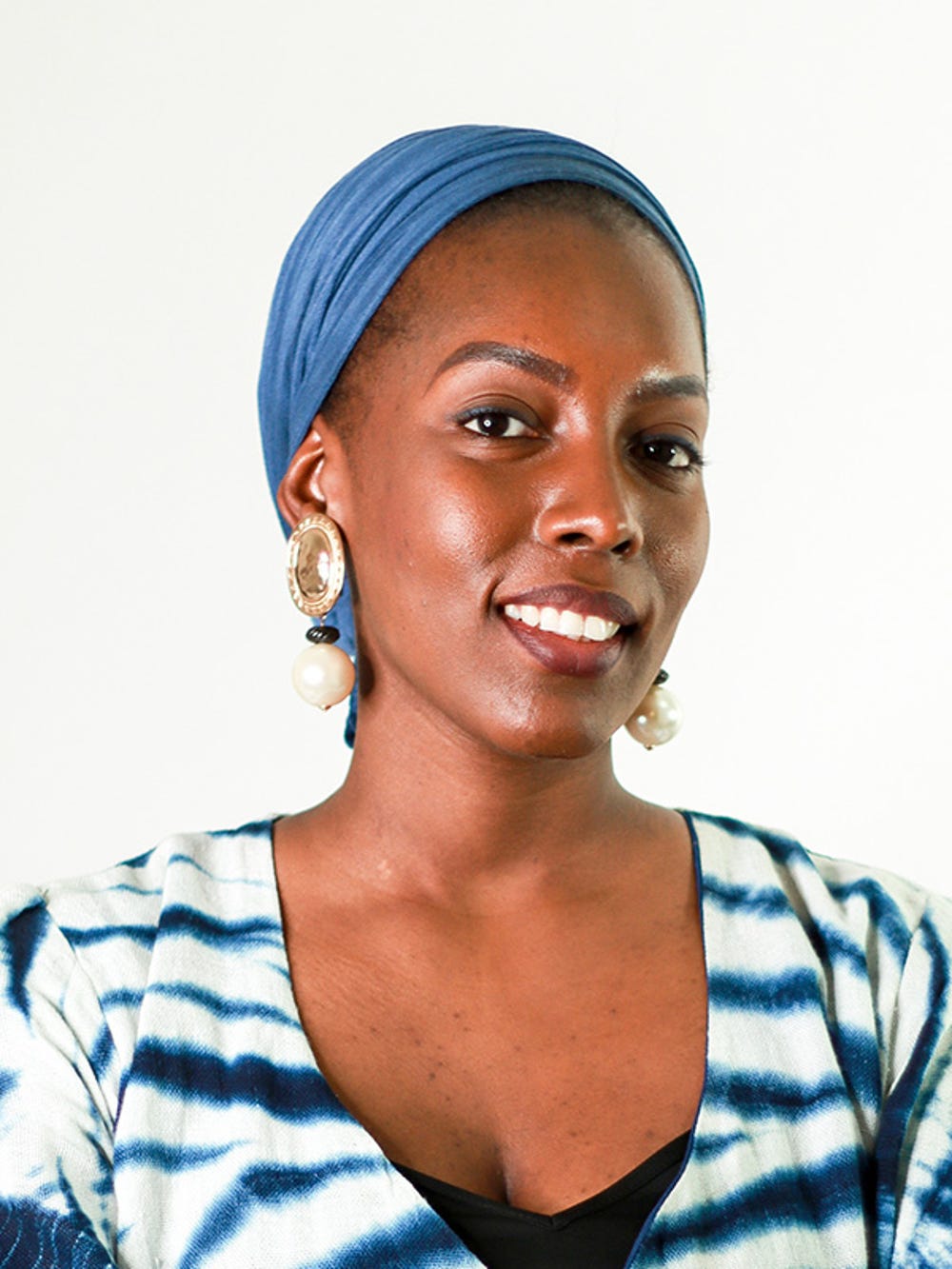
Maya is a food processing company specializing in grocery store products using an inclusive model through partnership with farmers in Mali.
Francophone Sub-Saharan Africa
MALI
FELLOW
2021
Lightning Talks: Seynabou Dieng | What Makes a Great Impact Entrepreneur?
Seynabout Dieng is a CWI fellow and Founder & CEO of MAYA, a food processing company based in Mali that partners with local producers and promotes local goods. Her defining trait is community spirit.
Updated March 2021
Food is much more than nourishment
Food is a cultural touchstone that can connect people to their heritage. In many places, however, the food people eat has no relationship to their local communities.
This is true in Mali, where 75 percent of the country’s 20 million people depend on agriculture. Yet agriculture generates only 38 percent of the country’s GDP. The food industry is underdeveloped, meaning that Mali imports a majority of its manufactured food products. These imported foods, often the only choice available, don’t meet people’s expectations for taste and value. This broken local supply chain contributes to poverty and youth unemployment.
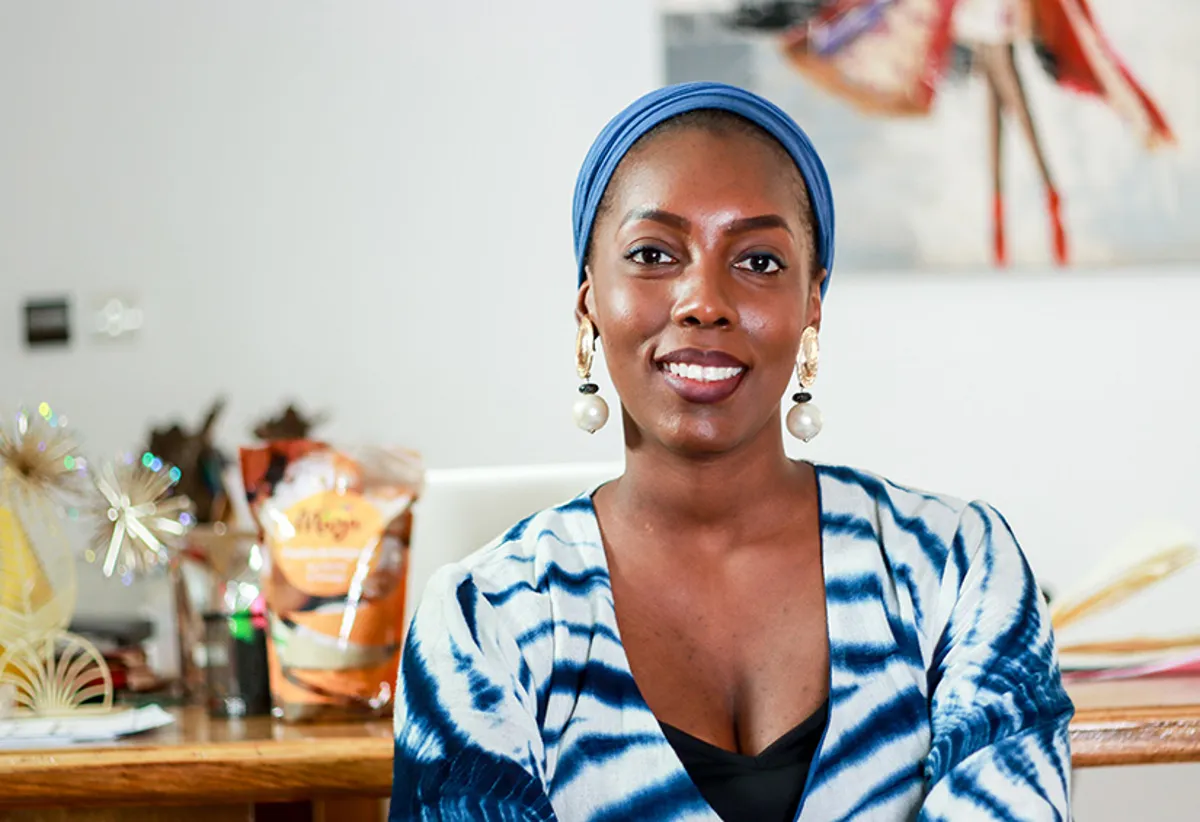
In 2018, I quit my job and I decided to dedicate my life to this. And we moved from my house into our first small processing unit when there was no longer room for my husband to enter the kitchen!
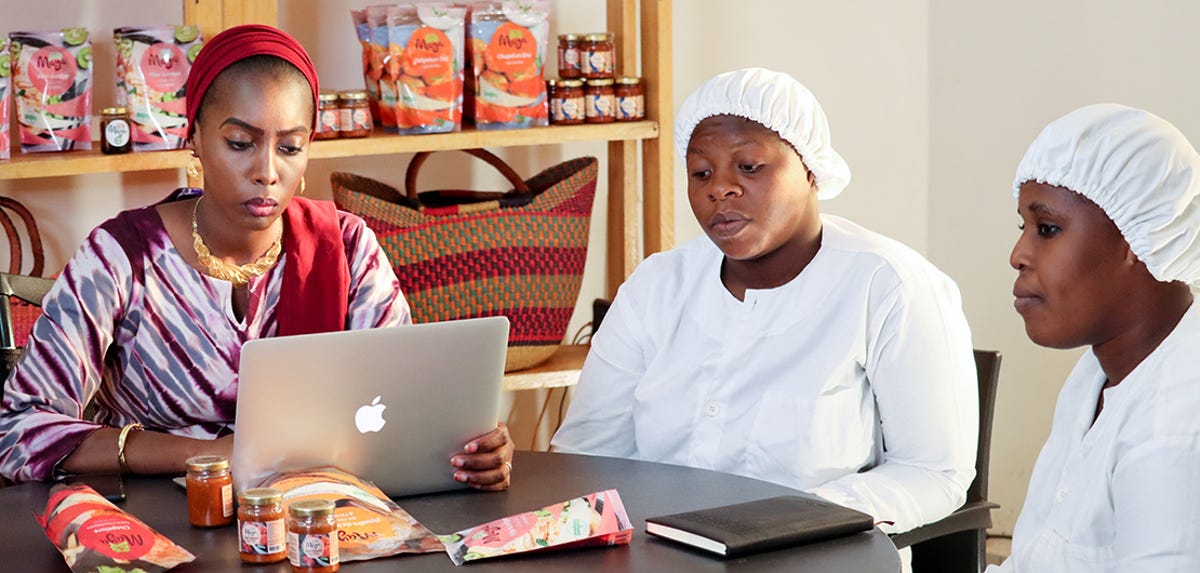
After high school, Seynabou Dieng moved to France, where she spent ten years before returning to Mali. “When I came back, I was shocked to see that everything I eat comes from elsewhere,” she says. And, when she visited the market, she saw vendors forced to throw away their unsold produce because they had no means to preserve it as they returned to their villages. “I felt like I had to do something.”
She discussed the problem with someone who knew it well—her cook. “Here in Africa, the more affluent classes can afford to have a cook,” Seynabou explains. “Maya is one of my former cooks. She comes from a farming family and she told me how women in the villages struggle to sell their products.”
The business named for Seynabou’s former cook began informally. Every weekend, she and Maya bought vegetables, herbs, and spices from the market. Back home, they wondered how they could store and preserve their purchases. “We used to cut it, mix it, put it in small bags, and put it in the fridge,” Seynabou says. She began sharing on Facebook how she processed the produce. At first, she and Maya did it for fun. Then their food processing posts went viral and people began asking to buy what they had made. “This is how it became a business.”
We bring the spices, grains, and vegetables into our processing unit and turn them into products like breadcrumbs, chilis, sauces, salad dressings, and pancake mixes.
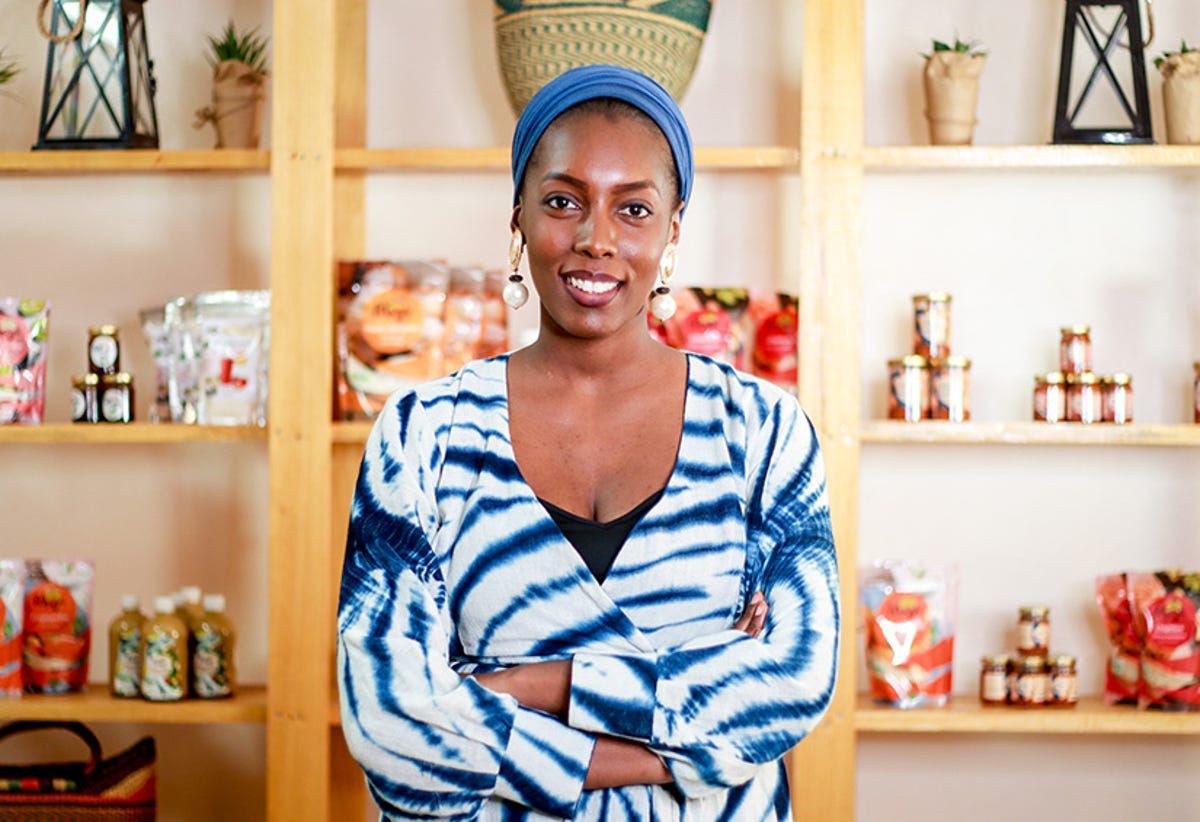
Now Maya—the business—produces a variety of manufactured foods made exclusively with local agricultural products and inspired by family recipes. “We shifted from buying in the markets to buying directly from eleven partner farmer associations,” Seynabou says. Since 2017, the company has processed 78 tons of vegetables and cereals, a third of which come directly from its partner farmers.
The impact on farmers has been significant. Farmers operate with more certainty and the money they receive enables them to buy seeds and support their families. Maya’s 21-person team processes its products, which are available not only in Mali but in Senegal, Burkina, and Ivory Coast.
“This is how Africa can be lifted out of poverty,” Seynabou says. “And I feel good that when my son goes to school, he can have food manufactured in Africa.” Her vision of connecting local food consumption with local agriculture is not only satisfying the taste buds but strengthening farming across the African continent.
